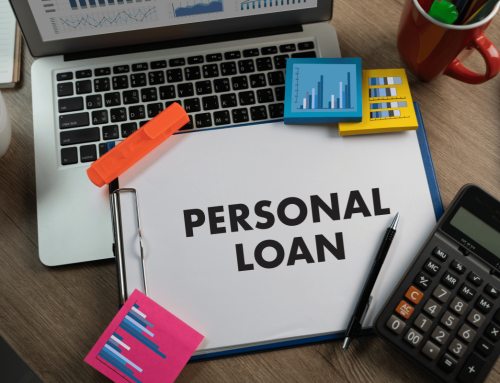
For many Singaporeans, credit cards are a convenient tool for managing daily expenses, earning rewards, and accessing short-term credit. However, when balances pile up across multiple cards and interest charges grow faster than repayments, debt can quickly feel overwhelming. According to the Monetary Authority of Singapore (MAS), the average credit card interest rate can hover around 25% per annum – one of the highest consumer borrowing costs in the financial landscape.
This is where the idea of debt consolidation loans and personal loans enters the picture. For individuals juggling multiple credit card bills, the question often arises: Can personal loans be used to consolidate credit card debt in Singapore? The short answer is yes, but whether it is the best solution depends on your circumstances, financial habits, and the type of loan you choose.
In this article, we’ll explore how personal loans can be used for debt consolidation, weigh the pros and cons, and compare them with other options available in Singapore. We’ll also provide practical tips for anyone considering this route, helping you make an informed decision.
What is Debt Consolidation?
Debt consolidation is the process of combining multiple debts – typically high-interest debts like credit cards – into a single loan with one fixed repayment schedule. Instead of paying several credit card bills with varying due dates and interest charges, you take out one loan to repay all outstanding balances. You then focus on repaying that single loan in monthly instalments.
In Singapore, there are two main ways to consolidate debt:
- Formal Debt Consolidation Plans (DCPs): These are structured programmes regulated by MAS and offered by participating banks and financial institutions. They are specifically designed for individuals with multiple unsecured credit facilities.
- Personal Loans for Consolidation: Unlike DCPs, a personal loan is a straightforward lump-sum loan you can use to pay off your credit cards. Once the cards are cleared, you repay the personal loan through fixed instalments.
The second option – personal loans – is what we’re focusing on here. While they are not marketed solely as debt consolidation tools, they can be effectively used for this purpose.
Why Consider a Personal Loan for Credit Card Consolidation?
Using a personal loan to consolidate credit card debt can make sense for several reasons:
1. Lower Interest Rates
Credit card interest rates in Singapore are notoriously high, often around 24%–26% annually. In contrast, personal loans from banks or a licensed money lender Singapore typically range between 6%–12% effective interest rate (banks) or up to 4% per month (licensed moneylenders, capped by MAS rules). While the actual rate depends on your credit score and income, the potential savings on interest charges are significant.
2. Simplified Repayments
Instead of juggling three or four credit card bills with different due dates, you only need to remember one fixed monthly repayment. This not only reduces the risk of missing payments but also makes budgeting far easier.
3. Predictable Loan Tenure
Credit card balances can feel endless when you only make minimum payments. Personal loans, however, come with fixed repayment terms – typically between one and seven years. This gives you a clear timeline for when you’ll be debt-free.
4. Improved Credit Score Potential
Consolidating debt and making consistent repayments can gradually improve your credit score. Clearing multiple cards at once also lowers your credit utilisation ratio, a key factor in credit scoring.
Potential Drawbacks of Using Personal Loans for Consolidation
While personal loans can be a lifeline, they’re not without drawbacks:
- Discipline Still Required
A personal loan only works if you avoid racking up new credit card debt after clearing your balances. Without discipline, you may find yourself with both a personal loan and fresh card debt – a situation worse than before. - Loan Fees and Charges
Personal loans often come with processing fees (typically 1%–3% of the loan amount) and penalties for late or early repayment. It’s important to factor these into the cost of borrowing. - Not Always Cheaper
If your credit score is weak, the interest rate on a personal loan may not be much lower than your current credit card rates. In such cases, a debt consolidation loan through a bank’s formal DCP might be more cost-effective. - Impact on Credit Limit
Taking on a personal loan may reduce your access to other forms of credit, as lenders consider your overall debt obligations before extending additional credit.
Personal Loans vs Debt Consolidation Plans (DCPs)
Singaporeans weighing their options often ask: Should I use a personal loan or apply for a DCP? Here’s a comparison to help:
| Feature | Personal Loan | Debt Consolidation Plan (DCP) |
| Eligibility | Open to most employed individuals; approval based on credit score and income. | Must have multiple unsecured debts with at least 12 times monthly income; available only to Singaporeans/PRs. |
| Interest Rates | Typically 6%–12% EIR (banks); higher for licensed moneylenders. | Lower than credit cards; varies by bank but usually competitive. |
| Flexibility | Loan amount and use are flexible; can be used for any purpose, not just debt consolidation. | Must be used strictly for consolidating debts. |
| Structure | Fixed monthly instalments; repayment period 1–7 years. | Similar instalment structure, but longer tenures may be available. |
| Regulation | Governed by MAS and Moneylenders Act (for licensed lenders). | MAS-regulated; stricter eligibility and structure. |
In short: Personal loans are easier to access and more flexible, but DCPs may offer lower rates and stricter debt repayment discipline.
Balance Transfer Options
Another alternative in Singapore is the balance transfer facility offered by many banks. This allows you to move outstanding balances from multiple cards onto a single card, often with a promotional 0% interest period (usually 3–12 months).
While tempting, balance transfers come with caveats:
- After the promotional period, interest rates revert to the usual high card rates.
- There is usually an upfront processing fee.
- If you don’t clear the balance in time, you risk falling back into high-interest debt.
Balance transfers work best for disciplined borrowers who are confident they can repay within the promotional window. For longer-term repayment, personal loans or DCPs are safer.
Practical Tips for Singaporeans Considering This Option
If you’re thinking of using a personal loan to consolidate credit card debt, here are some practical steps to take:
1. Compare Loan Offers Carefully
Different banks and licensed lenders in Singapore offer varying interest rates, fees, and tenures. Use comparison websites or MAS’s financial tools to check the effective interest rate (EIR), not just the advertised rate.
2. Check the Credibility of Lenders
Always borrow from MAS-regulated banks or a licensed money lender Singapore listed in the Registry of Moneylenders. Avoid unlicensed lenders or loan sharks, no matter how attractive their offers seem.
3. Calculate Affordability
Ensure the monthly instalment fits comfortably within your budget. As a guideline, your total monthly debt repayments (including housing loans, car loans, and personal loans) should not exceed 40% of your gross monthly income.
4. Consider Your Financial Habits
If you struggle with impulse spending, closing your credit card accounts after consolidation may prevent future debt. Some borrowers leave one card open for emergencies but keep limits low.
5. Seek Professional Advice if Needed
If your debt feels unmanageable, speak with Credit Counselling Singapore (CCS) or a financial adviser. They can guide you on structured repayment options and provide neutral advice.
Real-Life Scenario: A Singaporean Example
Let’s consider a simple case. Mei Ling, a 32-year-old marketing executive, has three credit cards with a combined outstanding balance of S$18,000. She pays the minimum sum each month, but interest charges of 25% per annum make it hard for her balance to shrink.
She decides to apply for a personal loan of S$18,000 from a bank at an EIR of 8% with a three-year tenure. Her monthly instalment works out to about S$565. By sticking to this repayment plan, she will be debt-free in three years, paying far less in interest compared to keeping her credit card debt.
However, if she were to continue using her credit cards freely, she might fall into deeper debt. The key is discipline and using the personal loan strictly as a consolidation tool.
Final Thoughts

So, can personal loans be used to consolidate credit card debt in Singapore? Absolutely – and for many Singaporeans, it’s a practical and effective solution. By replacing multiple high-interest card balances with one structured repayment plan, personal loans offer lower interest rates, predictable repayment timelines, and simpler financial management.
That said, personal loans are not a magic bullet. They work best when paired with good financial discipline and a commitment to avoid falling back into debt. For some, a formal debt consolidation loan under MAS’s DCP framework may be more suitable, while others may benefit from a short-term balance transfer.
Ultimately, the right solution depends on your personal financial situation. Whether you choose a bank’s personal loan or borrow from a licensed money lender Singapore, the most important step is to regain control of your finances and work steadily towards a debt-free future.


